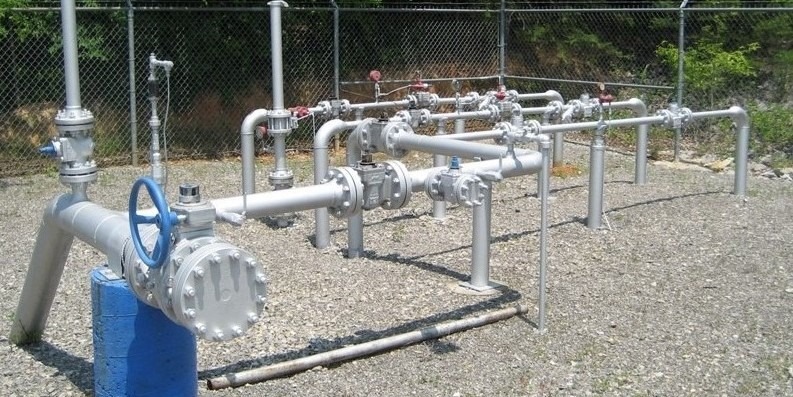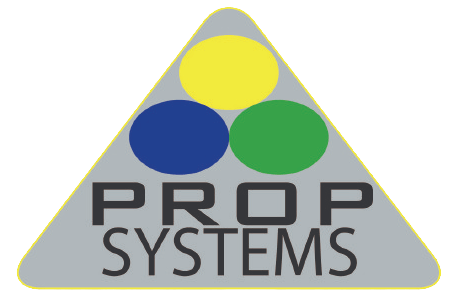On November 21 and 22, 2013, I attended a conference hosted by the Pipeline Safety Trust (PST). The PST is a non-profit organization which provided a forum for concerned residents, government agencies, pipeline companies, safety advocates and consultants to discuss challenging issues. Although the parties did not always agree, all sides respectfully heard each other out. If this is a forum that interests you, please find their link on the “Non Profit Insights” tab on this site.
Predicting Ruptures on Operating Pipeline
- 651 Dauntless Pkwy, Elmont, NY 11003
- propsystems25@yahoo.com
- (877) 710-7926

2013 Pipeline Safety Trust
In November 2013, I had the honor of going to a meeting coordinated by the Pipeline Security Trust (PST), a non-benefit association focused on giving a stage to different partners to participate in conversations about pipeline wellbeing. The occasion crossed two days and united concerned inhabitants, government organizations, pipeline organizations, security supporters, and advisors. The essential objective was to resolve testing issues connected with pipeline wellbeing, encouraging a climate where alternate points of view could be shared and regarded. This account dives into the complex subtleties of the gathering, featuring its importance, key topics, and the cooperative soul that won all through the occasion.
Foundation of the Pipeline Security Trust
The Pipeline Wellbeing Trust (PST) has been a conspicuous player in upholding for pipeline security since its commencement. As a non-benefit association, its central goal is to work with open and productive exchange among partners, pursuing the shared objective of guaranteeing the security of pipelines and safeguarding the networks they navigate. The trust perceives the intricacy of the issues encompassing pipeline security and endeavors to make a space where different voices can be heard and arrangements can be on the whole investigated.
The Gathering Setting and Design
The gathering occurred on November 21 and 22, 2013, and the decision of setting was demonstrative of the obligation to inclusivity. Participants accumulated in a favorable climate that energized systems administration and joint effort. The construction of the meeting was fastidiously arranged, with a progression of board conversations, feature talks, and breakout meetings intended to cover a large number of points connected with pipeline wellbeing.
Key Subjects Investigated
The meeting dug into a bunch of subjects, mirroring the multi-layered nature of pipeline wellbeing concerns. A portion of the key subjects included:
Administrative Scene: Conversations based on existing guidelines overseeing pipeline security, their viability, and possible regions for development. Administrative delegates shared bits of knowledge into the difficulties of authorizing consistence and the continuous endeavors to improve administrative systems.
Local area Association: Perceiving the fundamental job of neighborhood networks in pipeline security, the gathering stressed the requirement for successful correspondence and cooperation between occupants, pipeline administrators, and administrative bodies. Contextual investigations and examples of overcoming adversity featured occasions where local area contribution decidedly affected security results.
Innovation and Development: With headways in innovation assuming a pivotal part in pipeline security, meetings zeroed in on the most recent advancements in spill discovery, checking frameworks, and examination strategies. Specialists shared their points of view on how arising innovations could add to more vigorous security measures.
Natural Effect: The ecological results of pipeline episodes were a focal subject, addressing concerns connected with oil slicks, gas spills, and their effect on environments. The meeting gave a stage to natural promoters to voice their interests and take part in productive discourse with industry experts.
Crisis Reaction and Readiness: Given the potential for mishaps, conversations revolved around crisis reaction conventions and readiness measures. The coordinated effort between crisis responders, pipeline administrators, and neighborhood specialists was featured as a basic calculate limiting the effect of episodes.
Cooperative Air
One of the most astounding parts of the Pipeline Wellbeing Trust meeting was the cooperative climate that penetrated each conversation. Notwithstanding varying points of view among partners, there was a common obligation to figuring out some shared interest and pursuing arrangements that focused on wellbeing.
Board conversations were set apart by a deferential trade of thoughts, where members effectively paid attention to disparate conclusions and participated in helpful exchange. The accentuation on cooperation reached out to the breakout meetings, where more modest gatherings handled explicit issues in additional detail, cultivating a feeling of local area and shared liability.
The Job of Concerned Inhabitants
Concerned occupants, frequently the most straightforwardly impacted by pipeline projects, assumed a vital part in forming the conversations. Their firsthand encounters and nearby information gave significant experiences into this present reality effect of pipeline procedure on networks.
During open gatherings, inhabitants had the potential chance to share their interests, seek clarification on some pressing issues, and express their assumptions from both industry agents and administrative bodies. This immediate association helped overcome any issues among hypothesis and lived encounters, establishing the conversations in the real factors looked by those living close to pipelines.
Government Offices and Industry Viewpoints
Agents from government organizations and pipeline organizations contributed their viewpoints on the difficulties and amazing open doors in guaranteeing pipeline wellbeing. Administrative bodies shared refreshes on the authorization of existing guidelines and framed plans for future upgrades. Industry experts, thusly, introduced their obligation to taking on accepted procedures, putting resources into innovation, and teaming up with partners to improve security measures.
The Significance of Straightforward Correspondence
A repetitive subject all through the meeting was the significance of straightforward correspondence. Both pipeline administrators and administrative bodies recognized the requirement for clear and available data to be given to people in general. Straightforward correspondence was viewed as a significant part in building trust among networks and guaranteeing that occupants were very much informed about the wellbeing estimates set up.
Breakout Meetings: Top to bottom Investigation of Explicit Subjects
The meeting highlighted a few breakout meetings, each zeroing in on a particular part of pipeline wellbeing. These meetings gave a more top to bottom investigation of key themes, permitting members to take part in point by point conversations and offer mastery. Some prominent breakout meetings included:
Spill Discovery Innovations: Specialists in spill location advances examined the most recent progressions, difficulties, and best practices. The meeting investigated the possibility of carrying out state of the art innovations and the expected effect on decreasing reaction times in case of a hole.
Local area Administrator Joint effort: This meeting united local area pioneers and pipeline administrators to talk about cooperative drives. Members shared fruitful models of local area commitment and investigated ways of reinforcing organizations for better correspondence and shared liability.
Natural Effect Appraisal: Ecological backers, researchers, and industry agents teamed up to evaluate the ecological effect of pipeline projects. Conversations zeroed in on creating extensive appraisal procedures and integrating natural contemplations into the dynamic cycle.
Crisis Reaction Reenactment: An involved meeting recreated crisis reaction situations, permitting members to test and refine their emergency the executives methods. This commonsense methodology worked with a superior comprehension of the difficulties looked during crises and featured regions for development.
Organizing Open doors
Past the organized meetings, the gathering gave adequate systems administration open doors. Participants got the opportunity to associate with speakers, industry experts, and individual members. These casual collaborations frequently prompted the trading of significant experiences, the development of new organizations, and the cultivating of a feeling of local area among partners.
Intuitive Innovation Grandstand
An intuitive innovation grandstand was a feature of the meeting, highlighting exhibitions of the most recent devices and developments in pipeline security. Participants had the chance to investigate firsthand the state of the art advances examined in the board meetings, encouraging a more profound comprehension of their likely applications.
Difficulties and Contentions
While the gathering prevailed with regards to making a cooperative climate, it didn’t avoid tending to difficulties and contentions inside the domain of pipeline security. A portion of the petulant issues examined included:
Maturing Framework: The maturing foundation of numerous pipelines arose as a critical concern. Members wrestled with the intricacies of keeping up with and redesigning existing pipelines to satisfy current wellbeing guidelines, taking into account the monetary and calculated difficulties included.
Administrative Consistence: Conversations uncovered continuous difficulties in guaranteeing administrative consistence across the business. A few partners communicated worries about the consistency and viability of administrative requirement, calling for more prominent straightforwardness and responsibility.
Public Insight: Building and keeping up with public trust arose as difficult for pipeline administrators. The view of pipelines as possible perils and the effect of high-profile episodes on popular assessment were investigated, with members conceptualizing methodologies to further develop correspondence and straightforwardness.
Adjusting Financial Interests: The fragile harmony between monetary interests and security contemplations was a common subject. Partners wrestled with the test of encouraging financial advancement while guaranteeing the best expectations of security, bringing up issues about the obligation of industry players in accomplishing this equilibrium.
Conclusion
The Pipeline Wellbeing Trust gathering in November 2013 was an essential occasion that united different partners with a common obligation to upgrading pipeline safe
